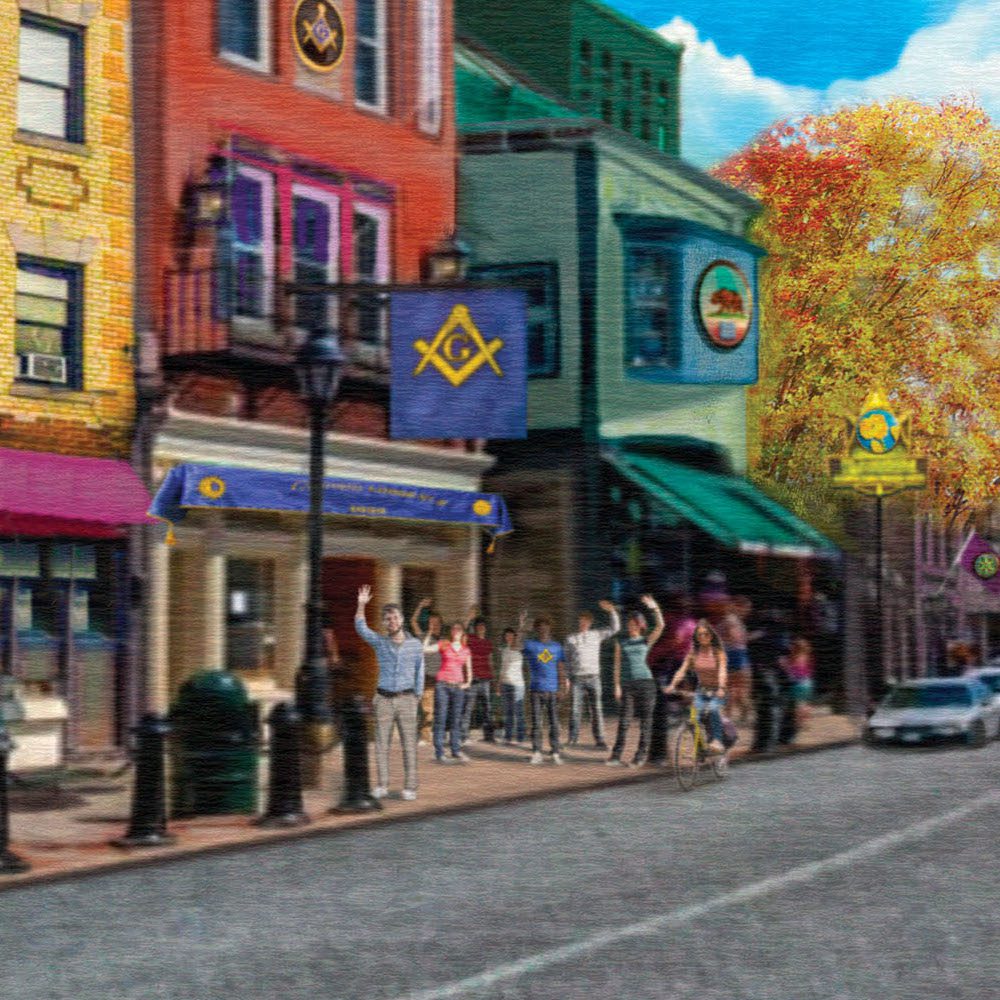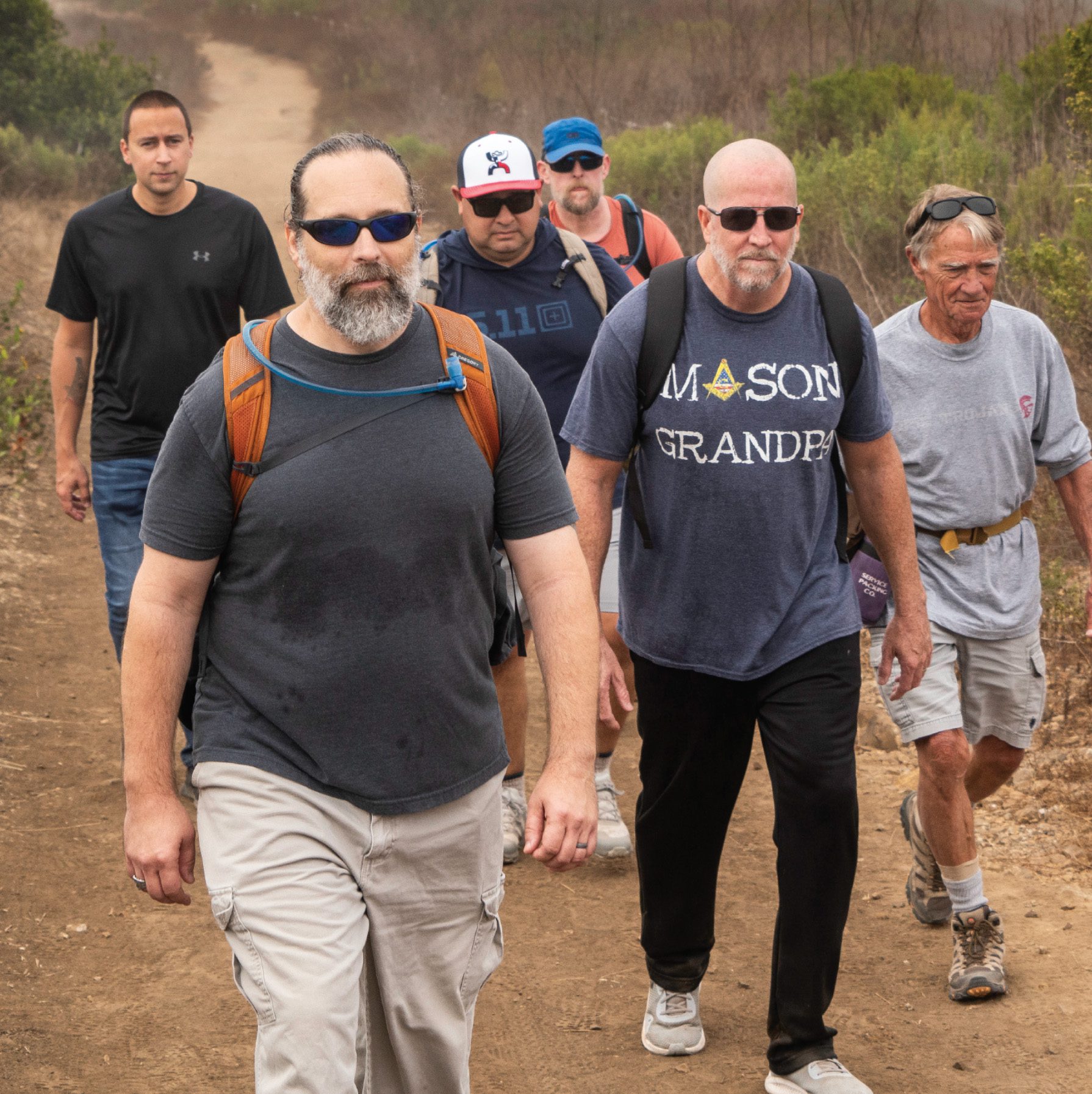
For Building Social Capital, There’s No Place Like Lodge
Groups like the Masons offer a way to strengthen community, combat loneliness, fight polarization, and maybe even save democracy.
By Drea Roemer
Michelle Augustin always enjoyed helping people. So when it came time to forge a new career in the United States, after working for 15 years as a dentist in the Philippines, she knew she wanted a job where she’d be able to connect with others. That ultimately led her to the Masonic Homes of California, where she began as a senior caregiver, helping residents with daily tasks and providing emotional support and companionship for the seniors there. “It’s fulfilling for me to serve residents,” she says, “and I make sure to never leave unfinished work.” This year there was more work than ever.
That’s because Augustin was among a cohort of trainees participating in the Masonic Homes Academy, a program that’s helping current and prospective employees gain advanced certifications in senior care. Through the academy—a partnership between the Masonic Homes and Unitek Training Healthcare, a nursing assistant training program with several Bay Area locations—Augustin was able to complete her coursework, along with six weeks of in-person applied-skills classes on Saturdays and a six-week supervised internship, all while continuing to work as a caretaker. Tuition was paid for by the Masonic Homes.
After passing a final written exam and a clinical skills evaluation, Augustin was officially a certified nursing assistant, and immediately hired into that role at the Masonic Homes—a promotion that came with a pay raise. “More than anything, it gave me more confidence,” Augustin says of the certification.
“As a CNA, I do many of the same things I did as a caregiver, but now I have even more knowledge.” She’s also helping close a worsening gap. In California and across the nation, health care facilities are facing a critical shortage of licensed staff, particularly registered nurses (who are responsible for guiding a patient’s overall care), licensed vocational nurses, and certified nursing assistants— a trend that was exacerbated by the pandemic. According to the American Health Care Association, 72 percent of nursing homes have lower workforce levels than they did pre-pandemic, and 89 percent are actively hiring RNs. Already short an estimated 130,000 workers nationally, senior homes are also required to increase staffing levels as a result of new rules imposed by the Centers for Medicare and Medicaid Services. In light of numbers like those, the Masonic Homes Academy is a rare win-win. Augustin is one of 60 graduates of the program who have gone on to accept roles either at the Masonic Homes or with other care facilities in the area. In addition to having their tuition covered, students can receive financial assistance for ancillary costs through the Gateway-In Project, a nonprofit that helps with childcare, computer, and textbook expenses. Chris Gershtein, the vice president of clinical services at the Masonic Homes (and a registered nurse) calls the program a “total success,” adding, “Part of the beauty of this partnership is that it enabled people already working for the Masonic Homes, whether in administrative or janitorial positions, to get the training necessary to become CNAs.” In addition to training those existing, in-house workers, the program also helped the Masonic Homes recruit new trainees from out-side its walls.
The results are stark: Prior to launching the program, the Masonic Homes in Union City had 20 openings for CNA roles. Now there are only a few, and Gershtein is confident those will be filled quickly. In fact, the program’s sterling record may ultimately be its undoing. After finishing this year’s cohort of 60 trainees, it’s not clear whether the academy will be extended. “It’s a victim of its own sucess, “Gershtein says with a laugh.
As for Augustin, while she’s excited about her role as a CNA, she’s already looking down the road, eyeing certification as a restorative assistant, which involves expertise in therapeutic rehabilitation. “No matter what, I’m excited to go to work every day,” she says. “I love taking care of the residents.”
Photo by:
Cynthia Cruz

Groups like the Masons offer a way to strengthen community, combat loneliness, fight polarization, and maybe even save democracy.

In Orange County, a new lodge is bringing together Masons with a love of the outdoors.

What do 100-year-old Masonic banquet menus tell us about the cultural—and epicurean—history of the fraternity?